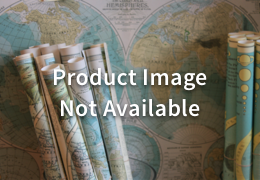
ALBUQUERQUE, GEOLOGIC MAP , NM
Product Details
- Product Number
- 207727
- Series
- SIM-2946
- Scale
- 1:100,000
- Alternate ID
- SIM2946
- ISBN
- 978-1-4113-1216-6
- Authors
- JAMES C COLE
- Version Date
- 01/01/2007
- Regions
- NM
- Countries
- USA
- Media
- Paper
- Format
- Folded
Additional Details
- Description
-
This new geologic map and accompanying interpretive report present a comprehensive summary of the geologic history of the Rio Grande valley in the vicinity of Albuquerque, New Mexico. The report describes and discusses a new interpretation of the history of the Rio Grande over the last 2.5 million years, based on considerable new investigation (1995 to 2003) related to understanding the ground-water resources of the area.
We describe evidence that indicates the Albuquerque valley was a closed basin in Miocene and early Pliocene time. The through-flowing Rio Grande did not form until after about 2.5 Ma, probably as a result of drainage integration through the Socorro area and down into southern New Mexico. That integration (along with change to cooler/wetter climate) caused the Rio Grande to erode into the older basin fill in the Albuquerque area, and to continue downcutting into early Pleistocene time. The valley was hundreds of feet deep when the first big eruption of the Bandelier Tuff took place at 1.6 Ma in the Jemez Mountains just north of the Albuquerque quadrangle. Coarse sand and boulder gravel deposits (containing clasts of the Bandelier Tuff) were carried south by the Rio Grande and filled the old paleo-valley to a level about 360 ft above the modern floodplain. That filling took place over a long period of nearly 400,000 years, as indicated by volcanic ash from the younger Bandelier Tuff eruption at 1.2 Ma contained in the upper deposits of the oldest Rio Grande terrace.
Since that time, the climate has cycled through progressively more intense glacial-interglacial conditions and the Rio Grande has alternately cut and filled in the valley. Three additional flights of river-terrace deposits are preserved in the quadrangle, marking the former positions of aggraded floodplains that existed prior to further river incision.
- Survey Date
- 2007
- Print Date
- 2007
- Height In Inches
- 40.560
- Length In Inches
- 52.510
- Boundary Type
- Geographic Unit
- Two Sided
- No
- Pieces
- 2
- Languages
- English





